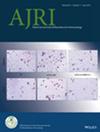The Association of ACA on Embryonic Development and Pregnancy Outcomes in Patients Undergoing IVF/ICSI Treatment
Abstract
Objective
To investigate whether anti-centromere antibody (ACA) is associated with embryonic development and clinical outcomes in patients undergoing IVF/ICSI treatment.
Materials and Methods
Women who underwent fresh or frozen embryo transfer cycles at a reproductive center between January 1, 2017 and January 1, 2023, were retrospectively studied. Women were divided into ACA– group and ACA+ group according to ACA levels. After controlling the bias between groups using the propensity score-matching (PSM) method, the impact of ACA on embryonic development and clinical outcomes was compared between the two groups. Propensity score regression adjustment and inverse probability treatment weighting were used for sensitivity analysis.
Results
A total of 18 578 patients with ACA screening information were included in the analytical sample, with 164 patients (0.88%) diagnosing ACA positive. After 1:3 PSM, 656 patients (492 in the ACA– group, 164 in the ACA+ group) were finally included. There were significant differences in the rates of cleavage, available embryo, blastocyst formation, and high-quality blastocyst formation between the ACA– group and the ACA+ group. Linear regression analysis indicated that ACA was negatively associated with the rates of available embryos on Day 3, blastocyst formation, and high-quality blastocyst formation after adjusting potential confounding factors. Binary logistic regression analysis suggests that ACA positivity does not affect clinical outcomes after IVF/ICSI treatment.
Conclusions
In this cohort study of patients undergoing IVF/ICSI treatment, ACA positivity significantly interfered with embryonic development. These findings suggest that ACA evaluation before IVF/ICSI treatment might be a promising biomarker for predicting embryonic development but not for clinical outcomes.

 求助内容:
求助内容: 应助结果提醒方式:
应助结果提醒方式:


